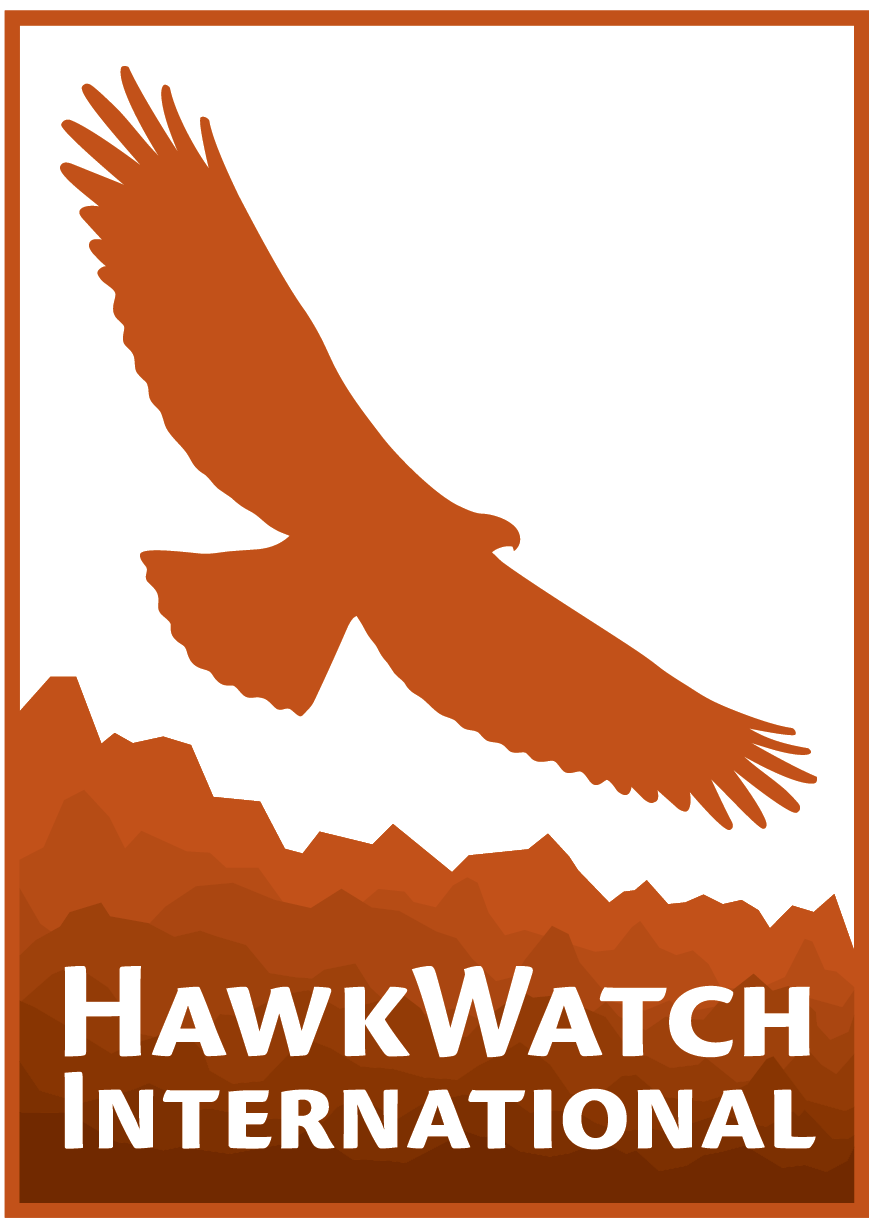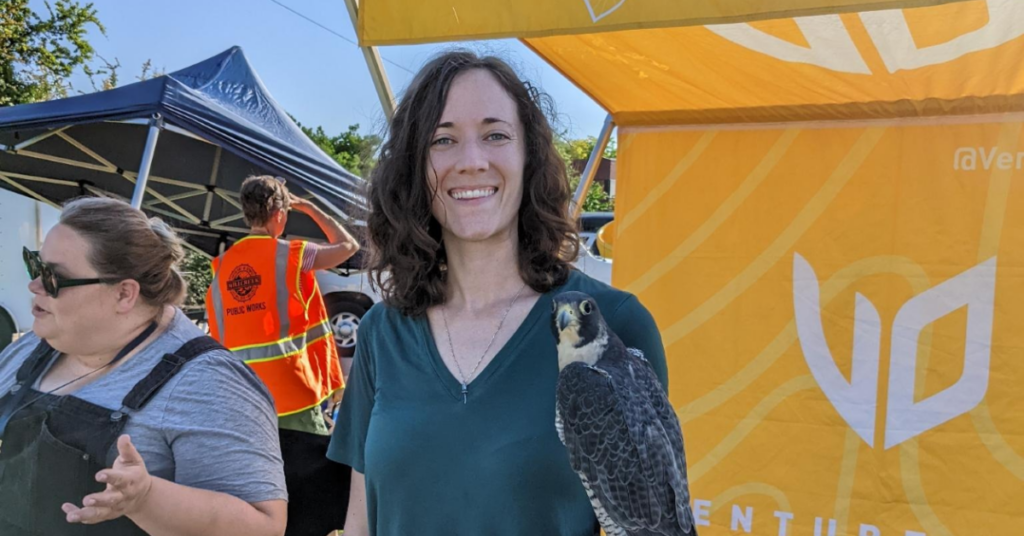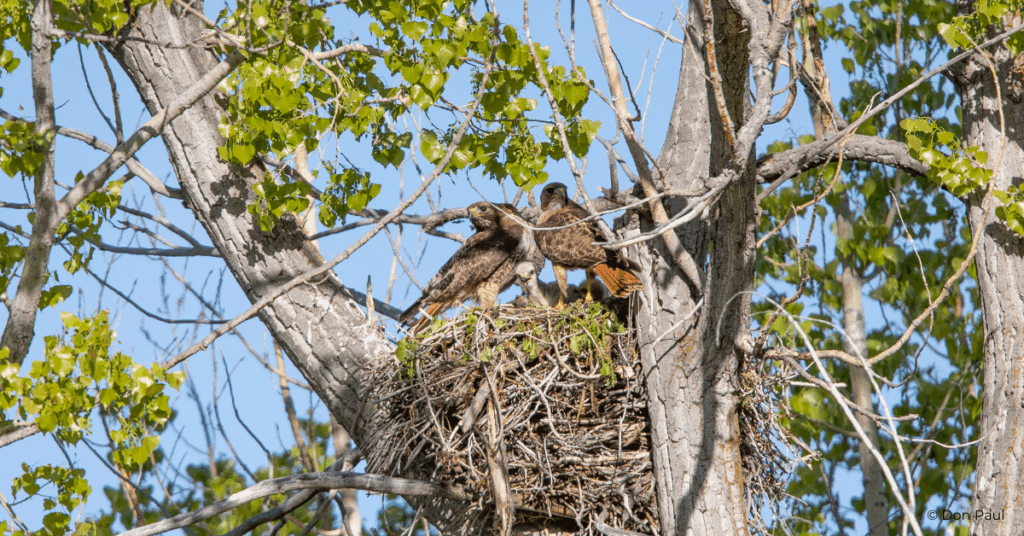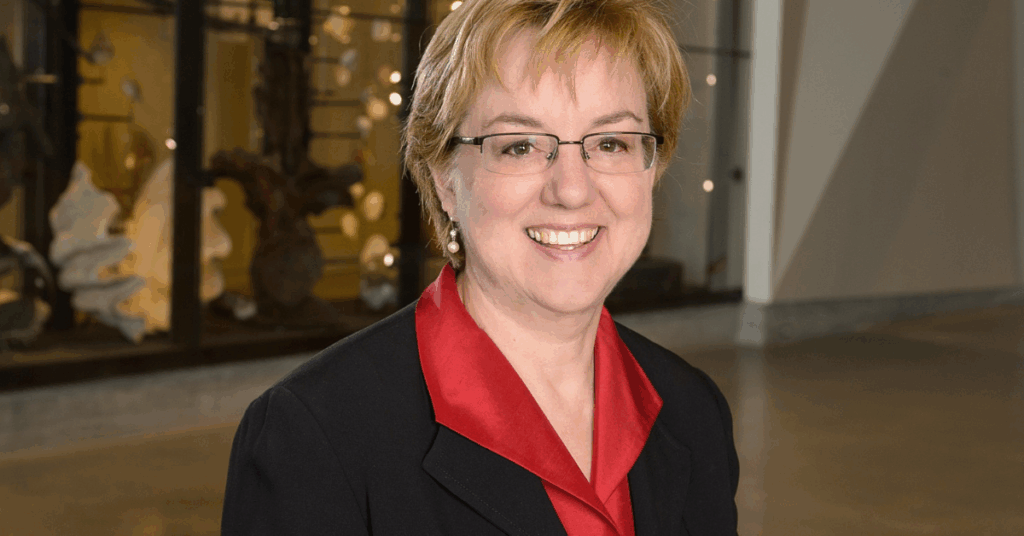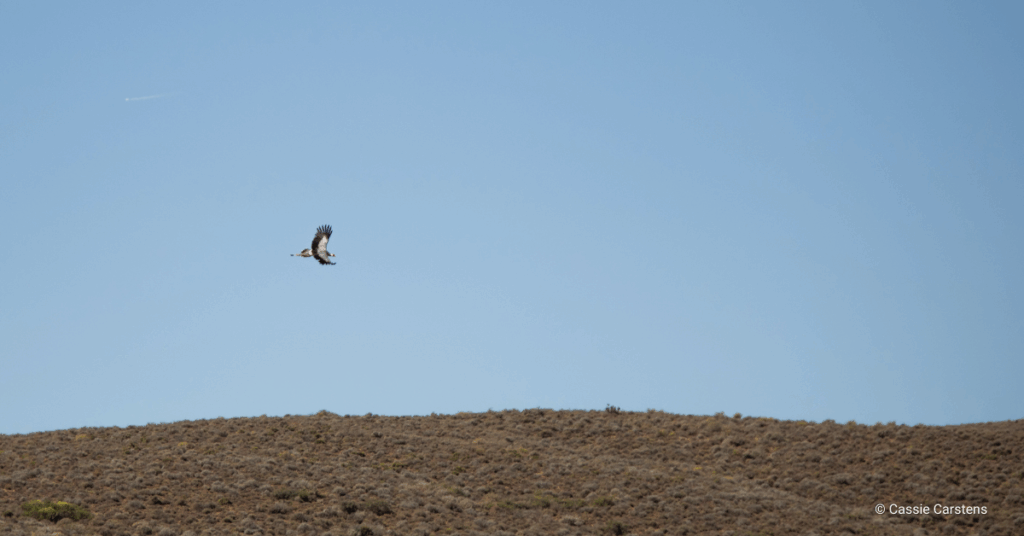How long have you been volunteering with HawkWatch International?
I started volunteering last autumn, in 2021.
How did you get started volunteering with HWI?
It’s actually kind of a funny story. I had been turned down for an educator job at HWI and figured that would be the end of it. One of the educators who met me during the interview reached out to me personally about six months later to ask if I would like to volunteer instead—and here we are! I probably wouldn’t have volunteered if I hadn’t been approached like that, and I’m so glad I was because I’ve thoroughly enjoyed every part of volunteering with HWI!
What is your “spark bird?”
It’s hard to pin down a single spark bird for me, but I think it would be an American Robin. There was a pair of fledglings on the ground in the yard outside the house where I grew up, and they were calling and calling and calling, and the parents never showed up to feed them. We finally brought in the youngsters and cared for them until they successfully fledged and flew away*. I now know it’s not a good thing to take in baby birds and wouldn’t take the same approach now, but these ones seemed truly abandoned. I got to know those two young robins very well when I had never given a second thought to birds before that. And even now, it never fails to bring a smile to my face when I hear a robin singing.
What do you do outside of volunteering for HWI?
I work in outreach education at Discovery Gateway Children’s Museum; outside work, I enjoy hiking, cooking, drawing, and looking for birds. Lately, much of my free time has been eaten up by a painting and redecorating project at home—I can’t wait to be done with it!
What is your favorite moment from volunteering?
I don’t know if I have a specific favorite moment, but I especially love when I get the chance to share an up-close bird encounter with a loved one. But even if I spend the whole time talking to people I don’t know, I enjoy seeing when their interest sparks, and they leave with a greater appreciation for raptors than they arrived with.
Why should people care about conserving raptors?
Raptors indicate an ecosystem’s health since they sit right at the top. I think sometimes people think ill of them because they pick off songbirds at their feeders (looking at you, Cooper’s Hawks), but I always try to reassure them that it’s a good thing that their yard has attracted a hawk. If there are enough birds to support even one raptor, then they have a thriving ecosystem in their yard.
*We all love birds, but please remember that caring for wildlife is a delicate job that requires federal permits. Doing so without one could harm the wildlife and/or lead to legal consequences for you. Instead, we encourage you to contact your local wildlife rehabilitator the next time you find injured or abandoned wildlife. They can help guide you to the best choice for yourself and the animal.
